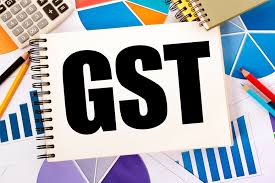Income taxpayers in India: The pros and cons of new and old income tax regime
The new tax regime is different in two ways from the old one. Firstly, it has more slabs with lower tax rates. And secondly, all the major exemptions and deductions available to taxpayers in the existing (old) tax regime are not allowed if the new tax regime is chosen.
CBDT circular issued on April 13, 2020, has directed all the employers to obtain a declaration from employees, if they wish to opt for the new tax regime. However, employees will still continue to have the right to choose between the tax regimes at the time of filing the return. Individuals opting for the new regime has to forego certain exemptions and deductions which were available with the old regime," said Akash Kumar, Director & Co-founder of Fincorpit Consulting Private limited
i) Leave travel allowance exemption which is currently available to salaried employees twice in a block of four years
(ii) House rent allowance normally paid to salaried individuals as part of salary.
(iii) Standard deduction of ₹50,000 currently available to salaried tax payers
(iv)Deduction available under section 80TTA/80TTB i.e.Deduction in respect of Interest on deposits in savings account) and 80TTB (Deduction in respect of Interest on deposits to senior citizens) will not be available to the taxpayers.
(v)Deduction for entertainment allowance (for government employees) and employment/professional tax as contained in section 16
(vi)Tax benefit u/s 24 on interest paid on housing loan taken for a self-occupied or vacant house property.
(vii) Deduction of ₹15000 allowed from family pension under clause (iia) of section 57.
viii) The deduction claimed for medical insurance premium under section 80D will also not be claimable
(ix) Tax benefits for disability under sections 80DD and 80DDB will not be claimable
(x) Tax break on interest paid on education loan will not be claimable-section 80E
(xi) Tax break on donations to charitable institutions available under section 80G will not be available.
xii) All deductions under chapter VIA (like section 80C, 80CCC, 80CCD, 80D, 80DD, 80DDB, 80E,80EE, 80EEA, 80EEB, 80G, 80GG, 80GGA, 80GGC, 80IA, 80-IAB, 80-IAC, 80-IB, 80-IBA,etc. will not be claimable by those opting for the new tax regime.
However, deduction under sub-section (2) of section 80CCD (employer contribution on account of the employee in a notified pension scheme—mostly NPS) and section 80JJAA (for new employment) can still be claimed.
Akash Kumar also listed some of the important pros and cons of opting new or old income tax regime
Pros
Old regime:
1) Encouragement to inculcate saving habits.
2) Investment servings as a source of passive income.
3) Helps in beating inflation through investment.
New regime:
1) Reduced tax rates & reduced compliances.
2) Greater disposable income.
3) Increased liquidity.
4) Greater flexibility in making the objective-based investment portfolio.
Cons
Old regime:
1) Lock-in period of investment hits liquidity.
2) Lower disposable income.
3) Limited choices of tax-saving investments.
4) Hassle of retention of proof of claimed deductions.
New regime:
1) Non-availability of tax deduction.
2) Reduced flexibility in choosing the new regime for those having business income.
3) Absence of automatic mechanism of inculcating saving habits.
Download our App to get knowledge updates: https://play.google.com/store/apps/details?id=com.app.gstmitra




Comments
Post a Comment